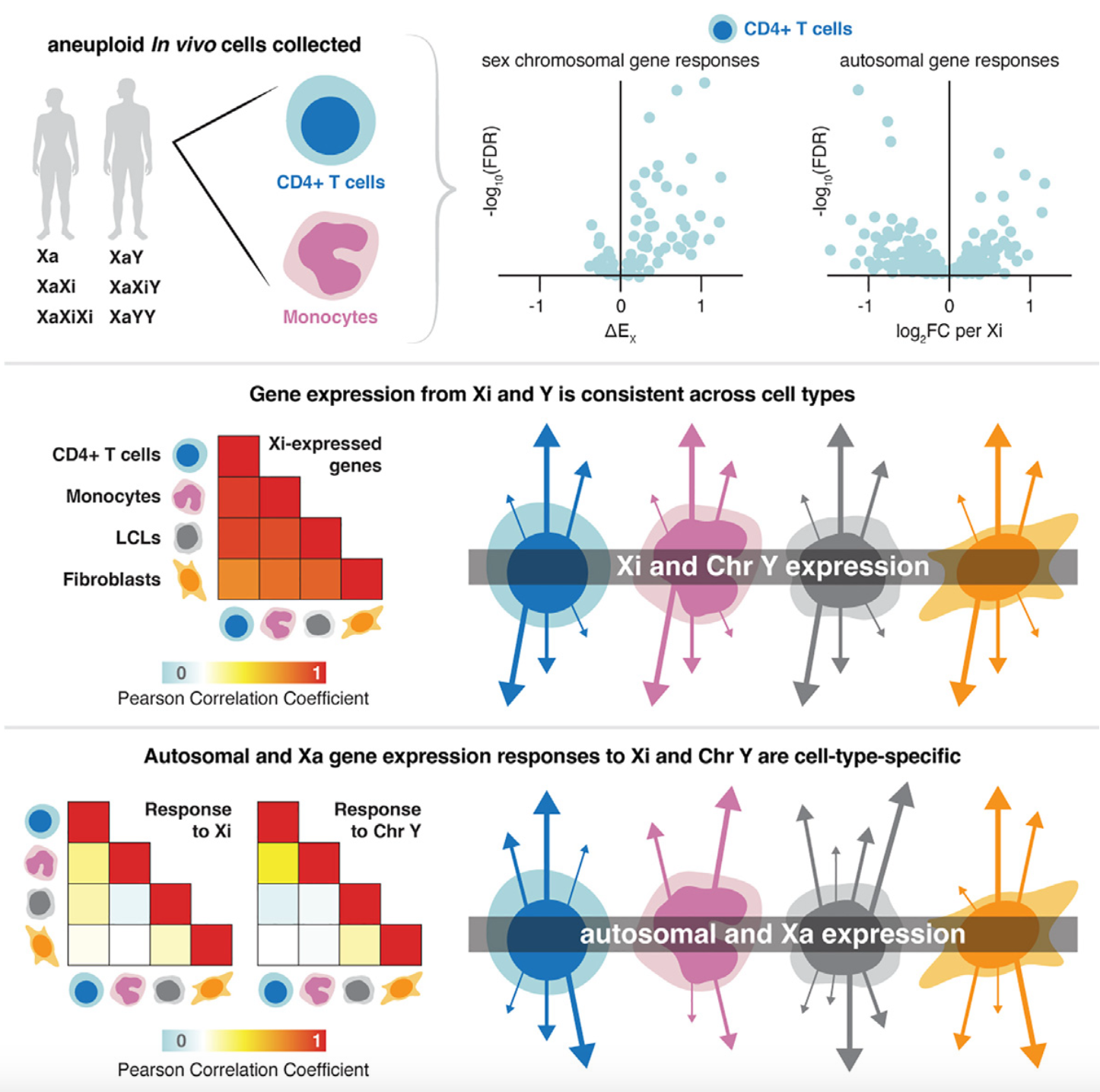Stable and robust Xi and Y transcriptomes drive cell-type-specific autosomal and Xa responses in vivo and in vitro in four human cell types.
Blanton, L.V., San Roman, A.K., Wood, G., Buscetta, A., Banks, N., Skaletsky, H., Godfrey, A.K., Pham, T.T., Hughes, J.F., Brown, L.G., Kruszka, P., Lin, A.E., Kastner, D.L., Muenke, M., Page, D.C. (2024) Cell Genomics. 4(9): 100628.
[HTML] [PDF] [Data] [Code] [bioRxiv version]
Abstract: Recent in vitro studies of human sex chromosome aneuploidy showed that the Xi (‘‘inactive’’ X) and Y chromosomes broadly modulate autosomal and Xa (‘‘active’’ X) gene expression. We tested these findings in vivo. Linear modeling of CD4+ T cells and monocytes from individuals with one to three X chromosomes and zero to two Y chromosomes revealed 82 sex-chromosomal and 344 autosomal genes whose expression changed significantly with Xi and/or Y dosage in vivo. Changes in sex-chromosomal expression were remarkably constant in vivo and in vitro; autosomal responses to Xi and/or Y dosage were largely cell-type specific (2.6-fold more variation than sex-chromosomal responses). Targets of the sex-chromosomal transcription factors ZFX and ZFY accounted for a significant fraction of these autosomal responses both in vivo and in vitro. We conclude that the human Xi and Y transcriptomes are surprisingly robust and stable, yet they modulate autosomal and Xa genes in a cell-type-specific fashion.
Graphical Abstract:

